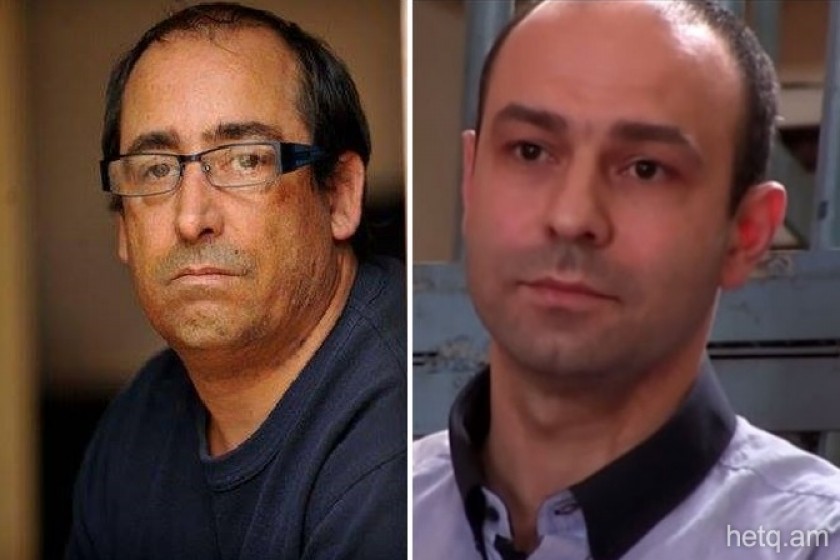
Prison Notes: My Interview with Michael O’Brien, Who Served 11 Years in a British Prison for a Murder He Never Committed
Mher Yenokyan (Hetq Correspondent at Nubarashen Prison)
This time for “Prison Notes” I’ve interviewed Michael O’Brien, who spent eleven years in a British prison for a crime he didn’t commit. O’Brien will soon visit Armenia to speak about what happened to him and how he was finally found innocent after a long and difficult legal battle. He studied law while in prison and after being released launched a campaign to make changes to the laws on the books in Britain. What follows is the letter I wrote him and the uplifting response I received.
Dear Michael O'Brien,
My warmest regards to you.
I am a life-term prisoner from Armenia serving 20 years of sentence for a crime not committed by me. In 1996, at the age of 20, I was sentenced to capital punishment after being found guilty of murdering my co-ed. Yet, for the following 20 years I have been struggling to reopen the case, to overturn the conviction based on just one person’s testimony, and prove my innocence. I don't even remember how many legal disputes I had during those 20 years, and all of them were in vain. Here, the government and the courts do not accept that there are wrongfully convicted and innocent people in the prisons.
While in the prison, I got familiar with biographies of many wrongfully convicted persons and about their persistent steps before being exonerated. I also read about your case and found some similarities with mine. You also were sentenced at the age of 20, being accused for murdering a person. Similar to my case, your verdict was made based on witness testimony rather than scientific arguments. You also have started learning jurisprudence and after being exonerated, continued your studies in the field. I learnt that we are also pen pals. I am determined to read one of your autobiographic books “The Death of Justice”.
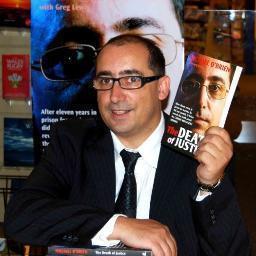 |
 |
| Michael O'Brien shows his book - "The Death of Justice" | |
I am also an author of several autobiographic books. I would recommend one of my works “Towards Lifelong Freedom”.
Currently, I am taking distance courses at the Slavonic University in Yerevan, Faculty of Law. This September I will enter my fourth year. I am also working at an online magazine hetq.am as a distant “prison correspondent”. I write prison letters and interviews. Recently, I interviewed US citizen Jeffrey Deskovic who served 16 years after wrongfully being convicted. He also studied jurisprudence and now he helps other wrongly convicted persons to be exonerated.
I hope you will accept my invitation to interview you as well.
My colleagues taught me to be short while forming my questions, but I haven’t mastered that skill yet.
I would like to express my deepest gratitude to you and Dr. Michael Naughton for accepting the invitation to come to Armenia and for your great contribution in the most difficult work in implementing real justice. WISH YOU HEALTH AND VICTORIES.
With cherished dream to meeting you in freedom one day...
Regards,
Mher Yenokyan
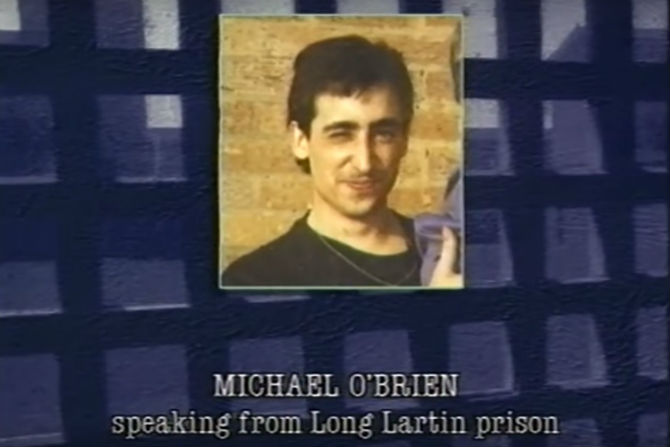
Here is Michael O’Brien’s response.
Dear Mher,
Thank you for your letter. I find your story fascinating and sad at the same time as I only know too well what being in prison is like for something you have not done. In our country one person’s evidence or testimony, especially in a murder case would not be allowed in evidence and you never would have got to trial let alone convicted. I am horrified that you were convicted on such flimsy evidence.
Whilst our system in Britain is far from perfect there are mechanisms in place where you can at least appeal against a wrongful conviction however I’m aware that this is not the case in Armenia. This in itself is quite shocking. Our cases are quite similar in the fact there was no forensic evidence linking us to the alleged crime and in my view is a clear indication that we were innocent. When someone commits a serious crime like murder there is always forensic evidence left at the scene.
I’m saddened to see that you have done nearly 20 years already however I do hope our visit and meetings with the justice minister will help your fight for freedom. Rest assured I will be bringing up your case with them. You must never give up hope of clearing your name regardless of how hopeless things may seem. Tomorrow is another day and I believe justice will prevail in the end.
 |
| O'Brien's freedom age - 31 |
It’s quite ironic that a lot of innocent people whilst in prison take up studying law sometimes it’s the only way forward. When I studied Law I saw all the flaws with my own case and others and started to understand how I was wrongly convicted then the fight began. I studied day and night wrote to all the journalists I could and made my case high profile and got the public behind me. I was one of the lucky ones able to do this. Not all prisoners are articulate enough to do it.
Keep up with the legal studies it will help you a lot and you may even find other cases like yours where you can back up your arguments for over turning your conviction.
In relation to an Interview I will answer all your questions.
-You have been imprisoned for 11 years for a crime not committed by you. Before listening to the verdict, did you ever imagine that an innocent citizen could be wrongfully convicted?
-Before I was wrongly convicted I did not believe that these things happened. I was blind to the fact that wrongful convictions happened until I saw it happen with my own eyes until it happened to me.
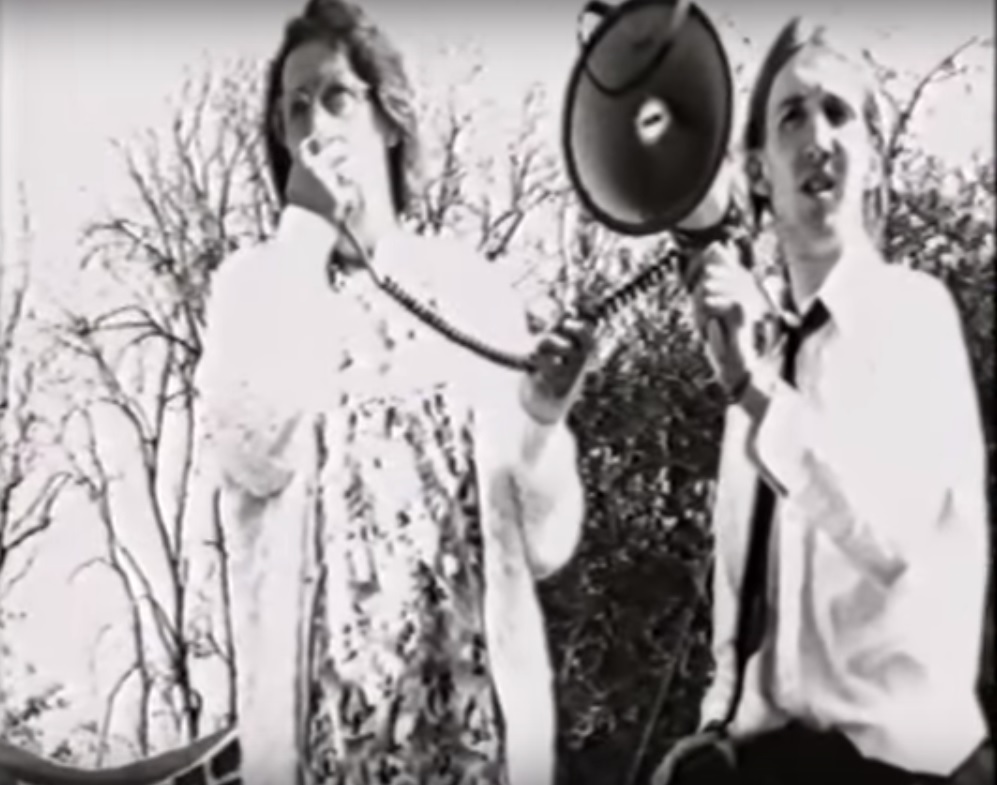 |
| O'Brien's sister during a protest demanding to reopen his brother's case |
-What was the reaction of the society when you were in the defendant’s seat, at the prison and after the exoneration? I mean the fact that an innocent person was labeled a criminal. How did you overcome the psychological difficulty?
Most people in my community knew me well and were horrified that I was convicted. They knew from the beginning that I would not do something like that so in that regard I was very lucky I had the community on my side right from the start. When I was sentenced after and taken to prison even the Prison officers knew I was innocent and were shocked at the verdict.
When I cleared my name because of all the media attention our case had people would stop me in the street and shake my hand and said we knew you were innocent and I had brilliant support from the public.
I am still psychologically damaged by my experiences and developed a long term illness called Posttraumatic stress disorder in which I have to take medication due to the flashbacks.
I have of my imprisonment. Prisons in the UK are violent places and I was at one prison where prisoners died at the hands of other prisoners.
-When did you first think about studying jurisprudence and why?
-I was three years into my sentence when I decided to study law I knew I had to educate myself if I was going to have any chance of overturning this wrongful conviction.
-How did you live those 11 years in the jail? Can you tell me a bit about British jails? I am familiar with rehabilitation programs and regime changes from A-D.
-In the eleven years I was in prison I kept busy reading law books and Newspapers took up education and studied. British Prisons compared to other countries are more humane and they let you out of your cells to do prison work, watch TV and go to the gym. They have a disciplinary system in place if you do not follow prison rules, where you can be punished and placed in solitary confinement and stoppage of your prison wages.
-How did it happen that your voice was heard? How did the reopening of your case take place and who helped you from the outside when you were imprisoned?
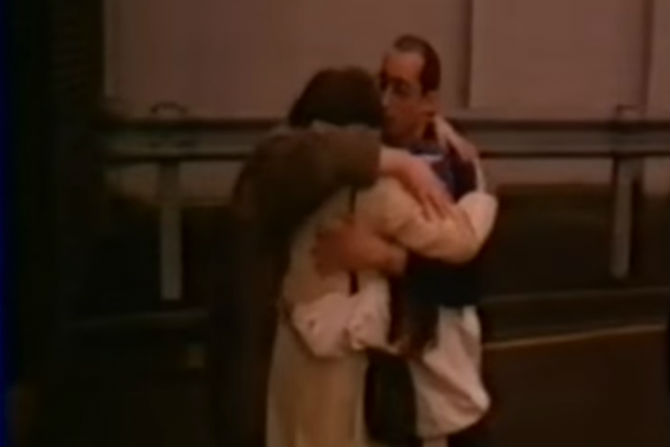 |
| O'Brien's first moments in freedom. His family meets him |
-My cries of Innocence were heard by campaigning journalists who looked at my case and saw a miscarriage of justice had taken place a number of TV documentaries were made about our wrongful conviction which lead to our case being reopened and referred back to the Court of Appeal where my conviction was overturned.
If it had not been for these journalists and my lawyer who believed in me I would never been able to prove my innocence. I did have a big campaign via my family and friends which also helped to get me out they were my voice from the outside.
-I cannot get the title of your book “The Death of Justice” from my head. It is very impressive. What is the main message of your book to the audience, the society?
-The main message in my book the Death of Justice was to show others you can fight your way out of prison and overturn their wrongful conviction too and I wanted the book to inspire those to educate themselves and fight back.
-I know that you became an author of amendments in a number of laws in Great Britain. What laws were changed thanks to your work?
-The laws I have changed is evidence of Similar fact which can be used in British courts to show a pattern of behaviour that someone has done over a long period of time. Example A police officer who alleges he overheard a confession in a number of cases say between 1983 -1987 which amounts to a cell confession (Later proved to be untrue).
Access to journalist for Prisoners
Access to compensation breakdown of the Award
Evidence of venerable suspects
I do hope this has been helpful and can I express my deep sorrow of you unjust imprisonment
Your case disturbs me greatly. I will do what I can to help you. Keep strong and hope to meet you when you are a free man.
Warmest wishes
Michael O’Brien
(Photo: Michael O’Brien, Mher Yenokyan)
translated by Lilit Verdian
 Videos
Videos Photos
Photos
Comments (1)
Write a comment